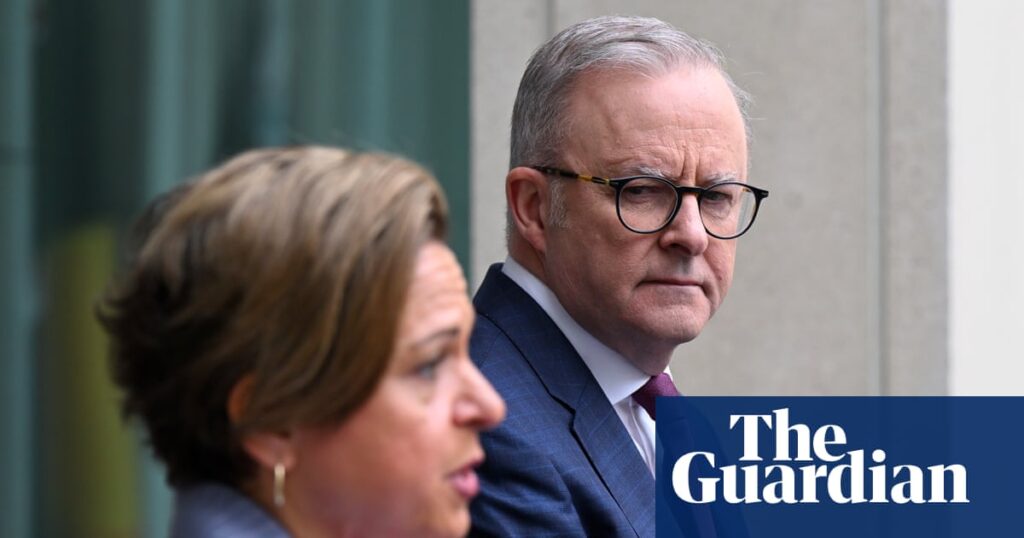Labor is facing a backlash over plans to dramatically curb access to government documents under freedom of information rules, with the Coalition and crossbench suggesting proposed changes could struggle to pass parliament.
The attorney general, Michelle Rowland, has announced the biggest changes to transparency rules in 15 years, including new charges for freedom of information requests to government departments and ministers, as well as tougher rules related to cabinet confidentiality.
Anonymous applications will be banned, and new rules designed to deter vexatious and frivolous requests introduced. Rowland has also flagged introducing tougher standards for access to documents containing advice to government and deliberative matters of ministers.
Individuals seeking access to their own information from the federal government will not be charged under the changes. But journalists, politicians and other experts seeking access to government information will face new fees. At the state and territory level, some requests cost about $50 per lodgement.
Rowland said the freedom of information rules were still based on the 1980s, “before the use of email became common and decades before the invention of the smartphone.”
“The Albanese government’s changes will continue to promote transparency in government while ensuring public sector resources are not unduly misused by anonymous or vexatious FoI requests,” she said.
Sign up: AU Breaking News email
Cabinet minister Mark Butler said the government was “being inundated by anonymous requests”.
“Many of them we’re sure are AI bot-generated requests. They may be linked to foreign actors, foreign powers, criminal gangs … we don’t know where those requests come from,” he said.
“We’ve taken the view, as state governments have, that a modest charging environment is consistent with usual cost recovery principles.”
The shadow attorney general, Julian Leeser, said he was very concerned about the introduction of “a transparency tax” by Labor.
If the Greens are opposed to the changes, Labor would need the Coalition’s support.
“I’m very concerned about this pattern from the government, a government that consistently has tried to reduce transparency,” Shoebridge said.
“This is even a government that produced a manual for public servants to try to avoid questions at Senate estimates.”
Leeser said he would seek a briefing on the changes being proposed by Rowland.
“We don’t like the idea that the government is proposing a transparency tax. We don’t like the idea that your government has put forward pay to play.”
Greens spokesperson David Shoebridge said existing FoI rules already hindered the release of information.
“All the reports into FoI have shown a system marked by refusal with departments hiding information that should be made public,” he wrote on social media.
“Labor imposing further barriers will make them the most secretive government on record. A shameful moment.”
Kieran Pender, the Human Rights Law Centre’s associate legal director, said the existing transparency rules were insufficient.
”Transparency is integral to improving Australia’s democracy, but right now Australia’s freedom of information system is not working,” he said.
“Any steps to limit access to the FoI regime must be carefully scrutinised.
“The Albanese government should prioritise fixing whistleblowing laws and winding back draconian secrecy offences, rather than making government information less accessible and more expensive.”
In July, the Centre for Public Integrity accused the Albanese government of having a poorer record than the Coalition under Scott Morrison for producing documents for public scrutiny.
In 2022-23, for the first time, more FoI requests were refused than fully granted to applicants, a report by the centre found, which it said undermined the transparency principles of the entire system.

